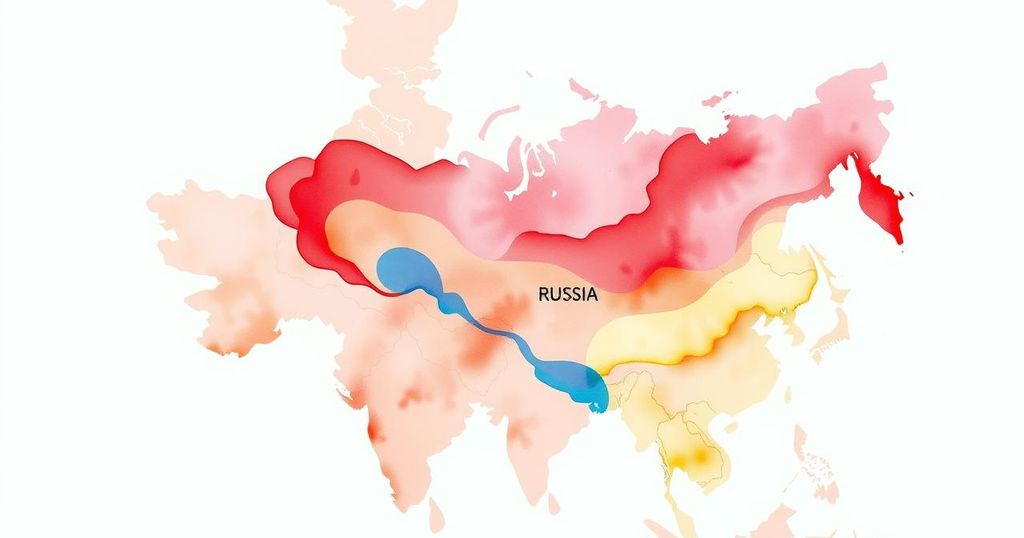Examining India’s Perspectives on the Russia-Ukraine Conflict
The India public’s views on the Russia-Ukraine war are diverse and complex, with varying levels of support and criticism influenced by education, media exposure, and city size. Key findings indicate 27% support Russia’s actions while 34% oppose them, with significant awareness gaps noted in respondents with less education and minimal exposure to Western media.
The ongoing Russia-Ukraine war profoundly influences global geopolitics, and as it nears its fourth year, public sentiment in India regarding Russia’s actions appears to be multifaceted and divided. According to recent studies, while 27% of respondents view Russia’s actions as necessary, a larger portion, 34%, classify them as unjustified. Significantly, 23% reported being unaware of the issue, illustrating a notable gap in knowledge about international affairs among Indians. Additionally, 16% opted not to express an opinion on the conflict, thereby emphasizing the variety of perspectives on Russia’s role in Ukraine.
Educational background plays a crucial role in shaping public opinion on the war. Among individuals with limited or no formal education, a staggering 42% reported a lack of awareness regarding the conflict, with only 19% deeming Russia’s actions unjustified. Conversely, individuals with intermediate to undergraduate education showcased conflicting views: 27% recognized Russia’s actions as necessary, while another 27% remained uninformed, and 24% condemned the actions as unjustified. Notably, college-educated respondents displayed a stronger critical outlook, with 41% condemning Russia while only 16% were unaware of the situation, indicating a correlation between education and engagement with global events.
Exposure to Western media emerged as another significant influence on Indian perspectives regarding the conflict. Individuals with no exposure to Western entertainment exhibited a higher rate of ignorance about the issue, with 37% unaware and 27% unwilling to share their views. Among this group, only 16% considered Russia’s actions necessary compared to 21% who deemed them unjustified. In contrast, those with moderate exposure were more opinionated, with 44% denouncing Russia’s actions as unjustified. Furthermore, individuals with high exposure displayed an almost even split in opinion, reflecting the impact of global media on public sentiment.
Geographic location also impacted opinions on the Russia-Ukraine conflict. Respondents from smaller cities were notably critical of Russia, with 41% identifying the actions as unjustified. In mid-sized cities, 31% shared this belief, while responses from larger cities were more balanced, with 31% viewing the actions as necessary and 32% as unjustified. These variances may be attributed to the diverse information landscapes and populations found across urban areas, fostering polarized public discourse.
These findings highlight the intricate and varied nature of Indian viewpoints on the Russia-Ukraine conflict, underscoring the critical impact of socio-economic and cultural factors on public opinion. Such complexities contribute to a rich tapestry of discourse, reflecting the diverse perspectives held within Indian society. This analysis was conducted by researchers at Lokniti-CSDS and draws upon comprehensive data collected in partnership with the Konrad Adenauer Stiftung, India Office.
In summary, the public opinion in India regarding the Russia-Ukraine war portrays a diverse and complex landscape. The analysis indicates that education, media exposure, and geographic location significantly affect individual perspectives on Russia’s actions. These factors, collectively influencing awareness and opinion formation, reveal the intricate interplay of socio-economic and cultural dimensions in shaping public discourse about international conflicts.
Original Source: www.thehindu.com




Post Comment